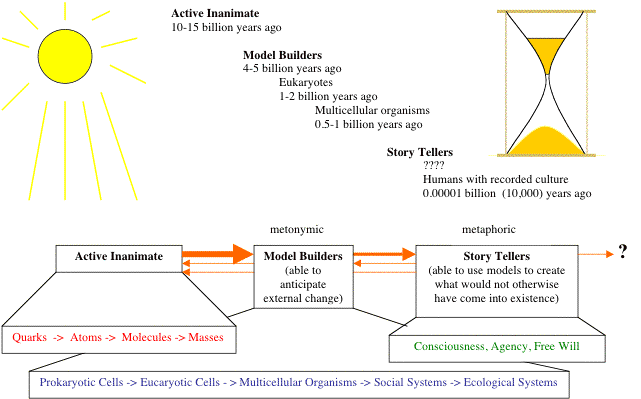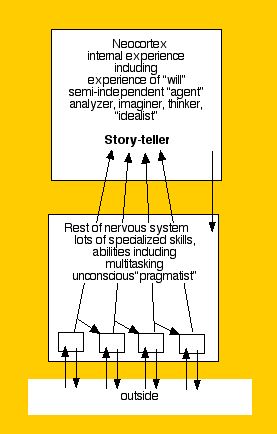
Setting the context:

Key points:
|
The human bipartite brain as a form of organized matter having both model building and story telling capacities
 |
Module 2 (conscious, experiencer, story teller) Module 1 (unconscious, actor, model-based, with elements of unpredictability/creativity) |

|
Key points:
|
The difference between model based processing and "story"
| Seeing different stories with one input | Creating things that have never been inputs |
|---|---|
 |
|
| Serendip | Roger Shepherd, The Mind's Eye: Finding Truth in Illusion |
Key points:
|
The human bipartite brain as the doer as well as the creator of science

Key points:
|
Moving on ...
"An assumption behind the Advanced Colloquium on Building the Scientific Mind is that the scientific mind provides a key perspective that in essential ways complements the various other mindsets. In other words, it is a mindset that everyone should have." ... Building the Scientific Mind